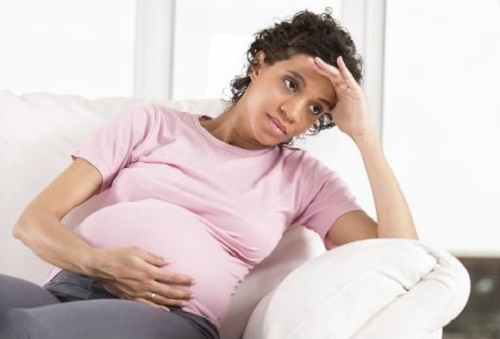Pregnancy is a wonderful time for many moms to be, but there are some common health concerns women need to know about as they journey through those amazing and at times emotional nine months. Here are some of the common pregnancy health concerns women face:

Anemia –
A drop in the levels of healthy red blood cells in the body
Feel tired, lethargic, and drained
Looking pale and sickly
Being faint, dizzy, or unsteady
Shortness of breath
Depression –
Extreme sadness that can set in at any time during the pregnancy and can last the entire pregnancy and afterward
Feelings of helplessness and irritability
Appetite changes or sudden mood swings
Loss of interest in things once enjoyed
Thoughts of harming self or baby

Ectopic Pregnancy –
Condition that is the result of a fertilized egg that implants outside of the uterus and causes pain, swelling, and blood flow issues- commonly occurs in the fallopian tubes
Abdominal bloating and pressure
Arm and shoulder pain that radiates
Heavy and sudden vaginal bleeding
Feeling dizzy or faint
Irregular or rapid heart beat
Sever cramps and pans
Fetal problems –
Unborn baby is thought to have a health issue
Baby is too small or big for gestational age
Physical deformities have been noted
Lack of movement of the baby

Gestational diabetes –
The mother’s blood sugar levels get too high during pregnancy when there were no blood sugar issues present before pregnancy
Usually, there are no symptoms.
Sometimes, extreme thirst, hunger, or fatigue
Testing for diabetes is done on all pregnant women
Hyperemesis gravidarum–
Severe”morning sickness”
Nausea that last all day without subsiding
Vomiting multiple times a day every day
Weight loss that is severe and rapid
Reduced appetite or inability to keep food and water down
Dehydration and organ troubles
Feeling faint or fainting

Miscarriage –
The term used for the loss of a pregnancy due to natural causes that occurs before 20 weeks, often occurring very early in the first trimester and many times before a woman even knows she is pregnant
Vaginal spotting or bleeding
Cramping or abdominal pain
Fluid or tissue passing
Placenta previa –
Placenta covers at least part if not all of the opening of cervix
Vaginal bleeding during second or third trimester that is usually painless
Some cramping in the back or stomach areas
For many women there are no symptoms
Condition is caught during routine examinations

Placental abruption –
Condition where the placenta separates from the wall of uterus before delivery, often resulting in the fetus not receiving enough oxygen.
Vaginal bleeding that is often sudden and severe
Cramping and abdominal pain
Uterine tenderness or burning
Preeclampsia –
A condition of high blood pressure that usually starts after 20 weeks of pregnancy and happens when when there has been no blood pressure issues in the past.
High blood pressure over 140/90
Swelling, particularly of the hands, feet, and face
Too much protein in urine
Stomach pain, bloating, and cramping
Blurred vision, dizziness, headaches, seizures
Preterm labor – Going into labor before 37 weeks of pregnancy
Contractions and associated pin and cramping

Even if you experience one of these health issues during your pregnancy most pregnancies are still carried close to full term and for pre-term deliveries new advances has made the survival rate for both mom and baby much better than they were just ten years ago. Be sure to speak with your doctor about any concerns you have and tell them about any symptoms or problems you may be experiencing – it is the best way to keep you and your little one safe during the pregnancy.

The following was a post by Sarah Jo Lorenz-Coryell


